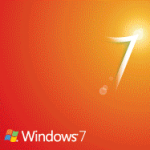iPhone's global success is more marketing myth than reality

American business history almost certainly will recall Apple as one of the most successful marketers ever. With iPhone, the company has performed a remarkable magic trick: Making the late-starting mobile seem ready to take over the world. But the hard reality of facts -- not the torrent of glowing emotions coming from American and European financial analysts, journalists or Mac loyalists -- show something else. Apple's smartphone is by no means the roaring success everyone here claims it to be.
Let me preface by reminding that I'm on record as calling Microsoft's mobile strategy a train wreck and asserting that the cell phone is poised to replace the PC. I've also called Apple's mobile platform -- iPhone, iPod touch and App Store -- as leading contender to become the next-generation computing platform.
Q: How essential is Microsoft Security Essentials? A: Does your door have a lock?

Today Microsoft released Security Essentials for free. I've been testing the software for the last month, and I'm nearly at a loss how to really review it. Either the software doesn't really work and my laptop is a malware whore, or Security Essentials works so well you just set it and forget it.
The software has never warned of any malware infection. It works silently and doesn't hog resources -- typically less than 6,000k memory, according to Task Manager. Next to perhaps AVG 8.5, I've never used anti-malware software that asked so little of me or my computer (Read Scott Fulton's take on Security Essentials).
Zune HD: The best portable media player you may never buy
Microsoft's Windows 7 House Party prep video is a real party pooper

Sometimes buzz is the last thing a company should want.
Microsoft's lame Windows House Party prep video is the rage of the Web right now -- and that's not good. I refrained from blogging yesterday but have been called to action. This morning, Interpret's Michael Gartenberg tweeted: "How have you not weighed in on the House Party videos? Are you just laughing too hard... We need some JW analysis here please." OK. OK. I'll break my silence.
Microsoft should dig into the WebKit to stop Google from framing IE

Internet Explorer is in a state of crisis so severe that Microsoft may yet lose most of the browser market territory claimed during the browser wars. Microsoft has no choice but to make a leap of development faith, by abandoning the IE rendering engine and releasing new WebKit-based desktop and mobile browsers. IE is a dead platform. It's long past time for Microsoft to end its "Weekend at Ernie's" behavior.
What a difference a decade makes. Ten years ago, Microsoft won the browser wars with Netscape, only to abandon the territory after Internet Explorer 6 launched. Many end users are still stuck in the IE 6 past, whether it's the browser directly or progeny Internet Explorer 7 or 8. According to Net Applications, IE 6 usage share is higher than either of the newer versions. Perhaps IE's market position would be better had Microsoft not let browser development lay idle until after Mozilla started working on Firefox about six years ago. AOL and Mozilla reignited browser development because of paid search -- that Google box -- as did several other software developers. AOL eventually gave up on Netscape, but Apple, Mozilla and Opera continued developing browsers.
Accounting rules shouldn't change to benefit Apple, other high-tech companies

The Financial Accounting Standards Board will make a grave mistake if it gives into Apple and other high-tech companies demanding a change to subscription accounting rules. FASB is preparing to vote on a rule change affecting GAAP (Generally Accepted Accounting Principles) versus non-GAAP accounting. Apple is on record as supporting the change, which would artificially boost the company's quarterly revenue and almost certainly its stock price. Some other companies, including Microsoft, could receive similar benefits.
Under current rules, companies defer subscription revenue. Since they deliver services over time, revenue is accounted for by X percentage every quarter. Microsoft has deferred revenue for years, but the numbers got really big starting in 2002, following the implementation of annuity volume-licensing contracts under Licensing 6. Four times a year, Microsoft states the total unearned revenue, how much deferred revenue it realizes as real revenue and how much more the company gains each quarter.
2001: An Apple Odyssey

It's not uncommon for bloggers and journalists to get hung up on the present. For Apple, there's big noise about soaring stock price, even considering economic recession, and increasing demand for iPhone. But the past defines the present. For Apple, products or services launched in a single calendar year -- and the consistent execution that followed -- define current successes, including iPhone.
I contend that next to 1984, when Apple launched Macintosh, 2001 was the most important year in the company's history.
Could Microsoft Tag augment Windows Mobile reality?

Microsoft is promoting its Tag barcode system over at its PressPass this week. The PR is a big marketing pitch showcasing brands like Ford and Proctor & Gamble; it's a sensible approach for the technology. But I see another: Making augmented reality more real, and in so doing recover Microsoft's botched handset strategy. AR isn't new, but it's all the geek rage now that iPhone has a compass: BBC, CNET News, Robert Scoble and Telegraph UK, among many others.
A quick AR primer: Augmented reality is essentially the overlay of additional visual information onto something real. American football is great example, where during TV broadcasts yellow lines and other information overlay the field of play. What? You thought those lines were really there? You experienced augmented reality.
If Microsoft sold a lifestyle, would you buy it?

In the Northern Hemisphere, Autumn is typically a time of bright colors and falling leaves. Perhaps Microsoft has moved south of the equator to Spring, because the company is poised for brand rebirth -- a reawakening of key consumer brands.
Six brands -- Bing, Xbox, Windows Live, Windows Mobile, Windows 7 and Zune -- are coming to market as new versions and/or marketing campaigns. No single brand will revitalize Microsoft's overall consumer image. But combined, these brands could revive the company's consumer brand profile. I predict that they also are Microsoft's last stand. Failure now will resign Microsoft's brand image to large businesses.
Why I chose Windows 7 over Snow Leopard (and you should, too)

Last week, I returned to using Windows 7 after spending the summer on a 13-inch MacBook Pro. Apple almost had me there for awhile, but I'm back where I belong and satisfied with the switch. Given that Apple released Snow Leopard a couple of weeks ago, Windows 7 officially launches October 22nd and there is plenty of geek debate about which OS is better, it's appropriate time to tell the story about how I went -- in the words of J.R.R. Tolkien -- "there and back again."
First, some background. I am a longtime Mac and Windows user. I have used Windows pretty much since its release in the early 1990s and Macs since December 1998, when I carted a Bondi Blue iMac out of a CompUSA. Based on my reading comments, many Betanews readers are religious about their platform choices; I am not. Mac OS and Windows are just tools to me. I don't dogmatically defend either platform. I'm neither Mac or Windows fanboy. My work requires using both operating systems, and for convenience one usually is primary. That said, I've flopped between platforms for more than a decade.
Tough luck iTunes 9, Zune 4 rocks

Nine is supposed to be greater than four. But when it comes to iTunes 9 and Zune 4, four is more. You disagree? That's what comments are for.
Microsoft released highly anticipated Zune 4 software today -- New Music Tuesday -- one week after Apple debuted iTunes 9. Zune HD also is available today, but I don't have the music player for testing.
Microsoft and the Econolypse: One Year Later

One year ago, Lehman Brothers failed, setting off a disastrous downturn in the global economy. For the United States, there is no recovery in sight -- or so I assert. Microsoft CEO Steve Ballmer is right to call any recovery a "reset" to a lower level. One question to ask: What is Microsoft's position -- and that of some other high-tech companies -- now compared to September 2008?
Lehman Brothers filed for bankruptcy a year ago today, Sept. 14, 2008. On Sept. 12, 2008, Microsoft's market capitalization exceeded Walmart: $252.18 billion to $245.52 billion, respectively. Metaphorically, Lehman Brothers' collapse pulled water from the shore, before sending a mountainous tsunami through global stock markets. The Sept. 29, 2008, U.S. stock market collapse washed away billions of dollars in public company value. That day, Barron's compiled a Top 10 list of tech losers, which combined shed $111 billion in market capitalization.
What is the Microsoft Lifestyle?

Since January, when I switched to Windows 7 (Beta and later Release Candidate), I have sought an answer to that question. To my surprise, I have yet to find a Microsoft lifestyle -- not one that fits me. So I ask Betanews readers: What is the Microsoft lifestyle? What is your Microsoft lifestyle? Please answer in comments.
Perhaps Microsoft's lifestyle is enterprise computing, something I don't participate in. I've never worked for a company that required SharePoint and often, because of older deployed software, neither has there been mandate to use Exchange Server. When I was an analyst, writing in Word was a must, but not before or since.
Is Microsoft violator or victim in i4i patent dispute?

Perhaps they don't use Microsoft Office at the courthouse in Tyler, Texas? Could there be no computers at all and just Selectric typewriters? I have to wonder following yesterday's injunction barring Microsoft from shipping Word.
I'm being snide because Tyler is the reputed "patent troll" capital of North America. Plaintiffs tend to win big judgments there, and surrounding vicinity, against companies like Microsoft. As such, it's easy to dismiss yesterday's court judgment as meritless. But is it?
Microsoft and Nokia do the right thing for the wrong reasons

Today's Microsoft and Nokia strategic alliance is important for both companies, but probably not for the reasons many people will write about. Mobile Office is no big deal. Most people don't need it. Nokia already supports Exchange Sync, which matters more. For Microsoft, the deal's big bang is Office Communications and SharePoint servers support on Nokia handsets.
Microsoft casts the deal as being for enterprises, which is shortsighted. Based on the announcement, axiom "doing the right thing for the wrong reasons" applies here. The Nokia deal is potentially quite good for Microsoft, but for other reasons than Mobile Office. But, for Microsoft, Mobile Office must be the strategic priority, because the company needs to extend Office desktop software's relevance to the handset and the cloud. As I've written many times before, a new applications stack -- mobile device to the cloud -- challenges Microsoft's dominant Office-Windows-Windows Server applications stack.
Joe's Bio
Joe Wilcox is BetaNews executive editor. His motto: Change the rules. Joe is a former CNET News staff writer, JupiterResearch senior analyst, and Ziff Davis Enterprise Microsoft Watch editor.
Ethics StatementBetaNews, your source for breaking tech news, reviews, and in-depth reporting since 1998.
© 1998-2025 BetaNews, Inc. All Rights Reserved. About Us - Privacy Policy - Cookie Policy - Sitemap.

